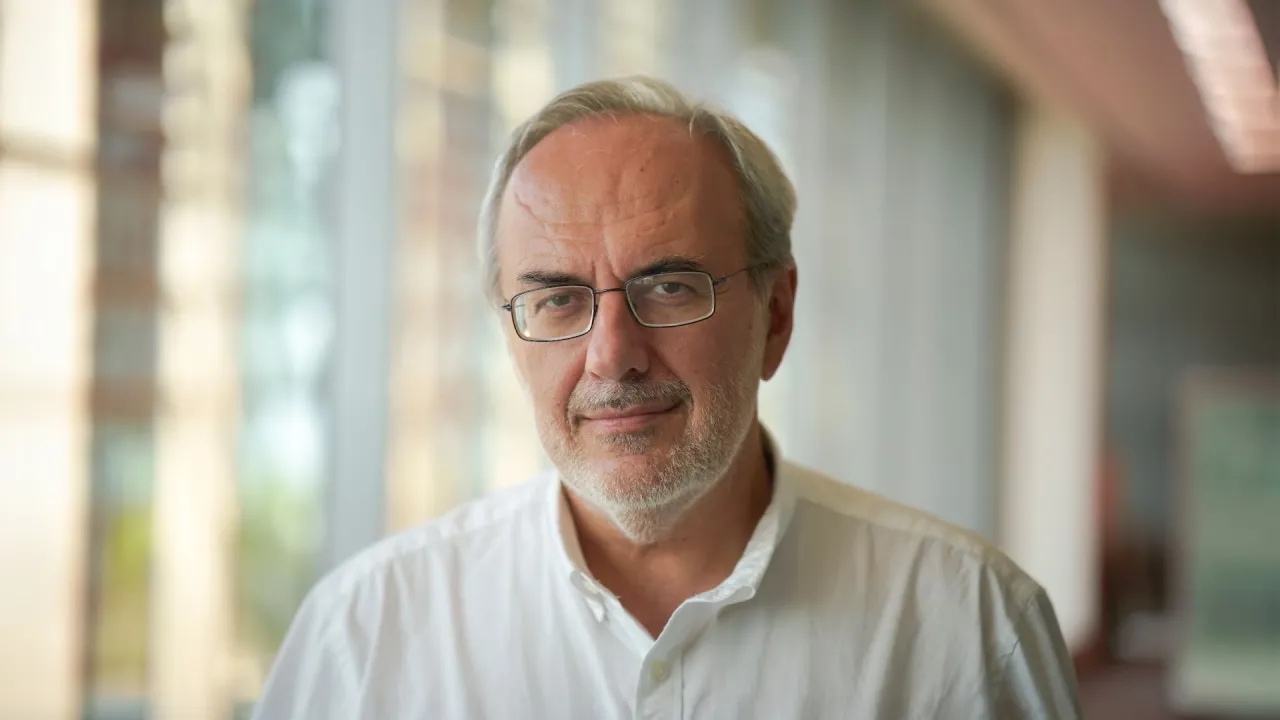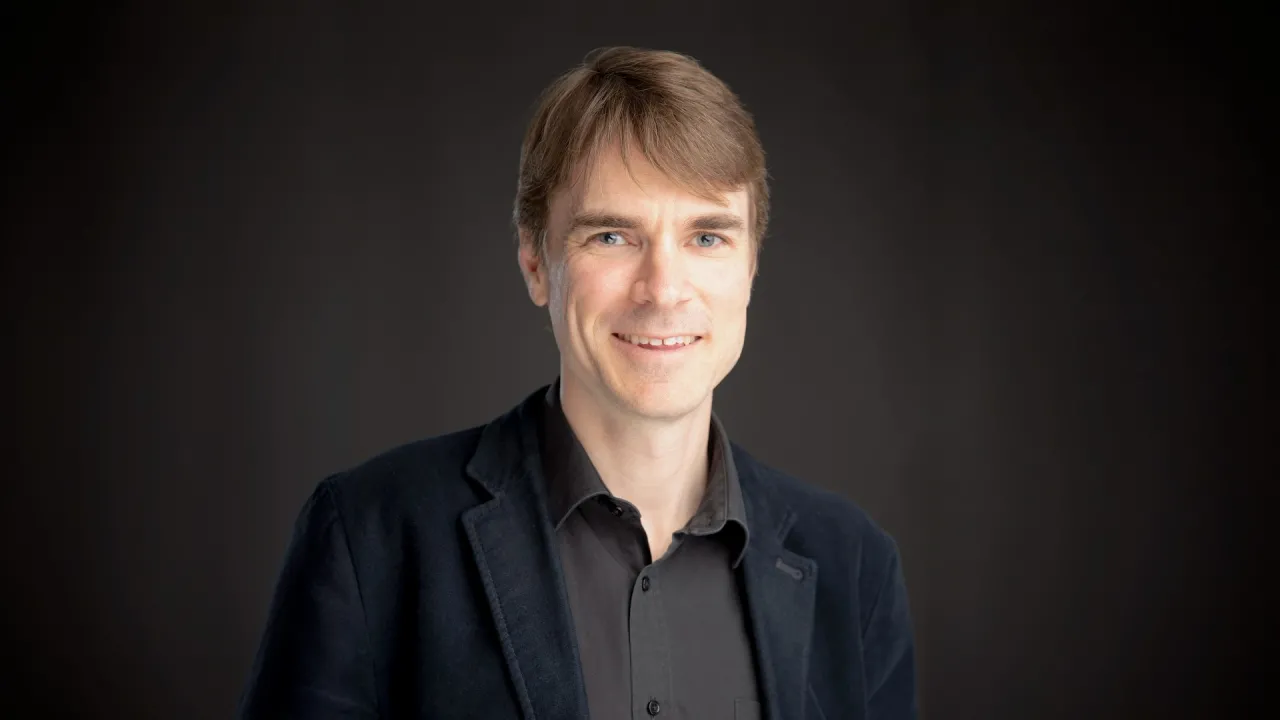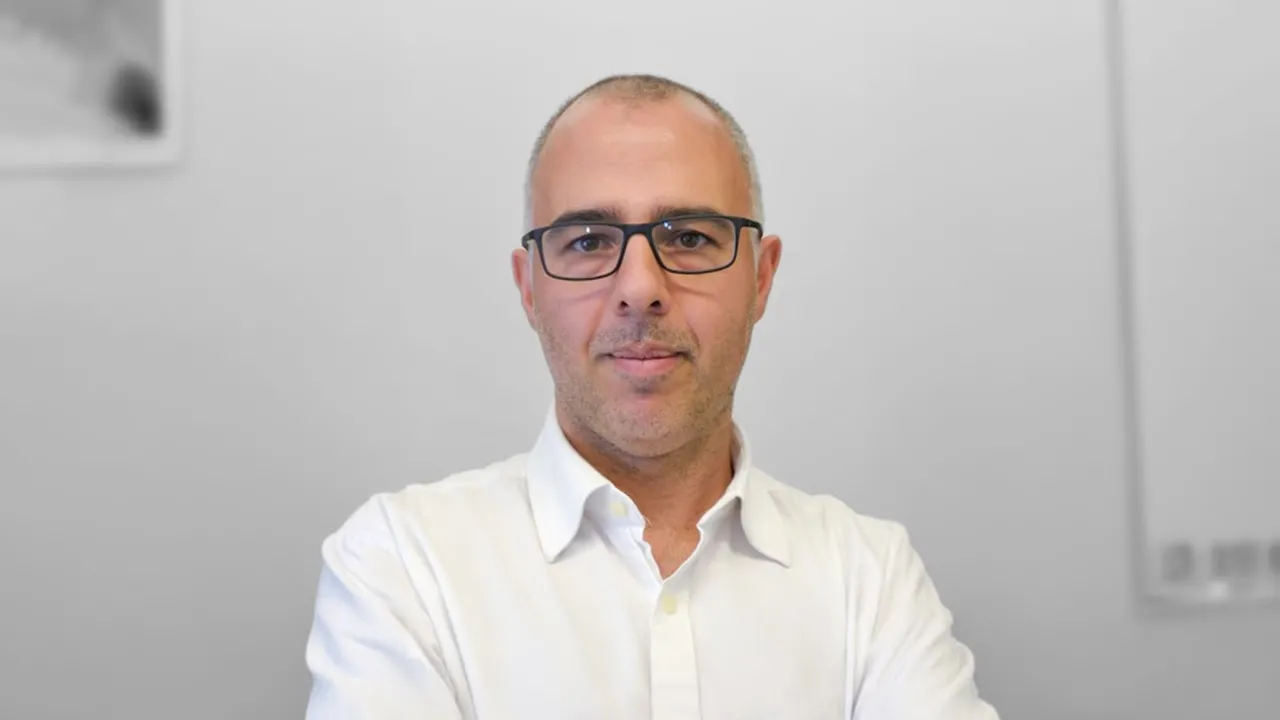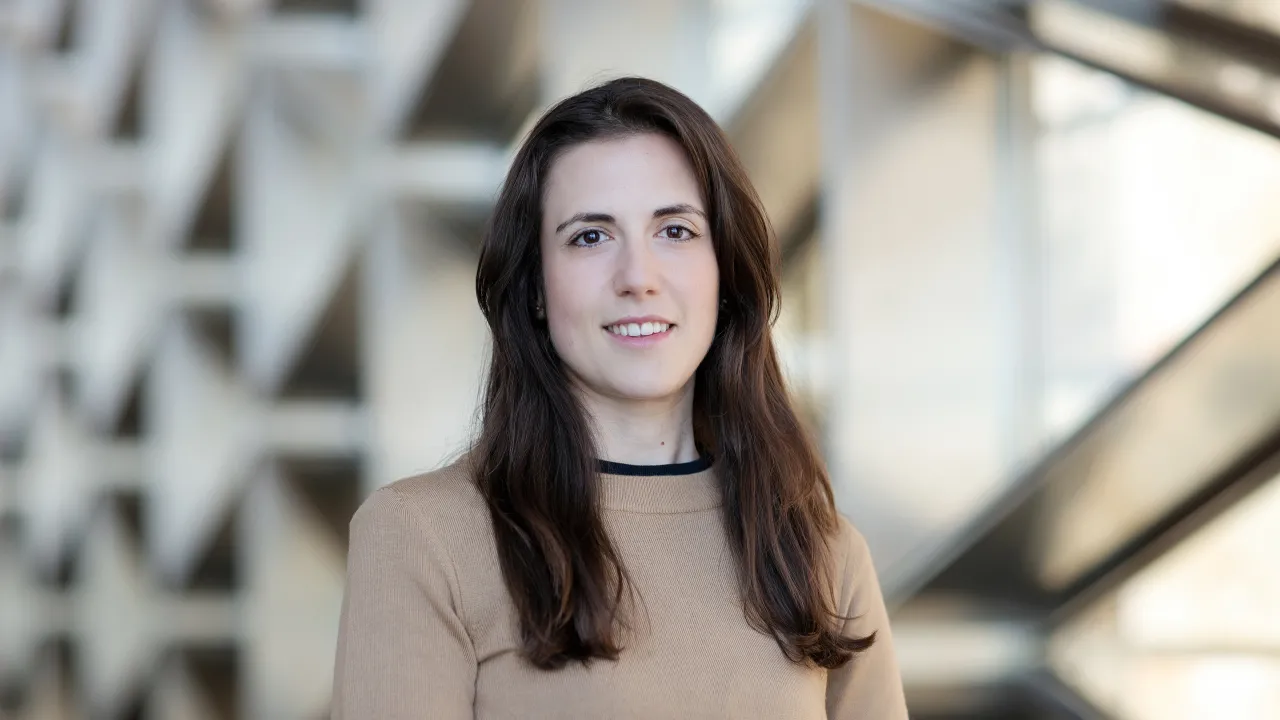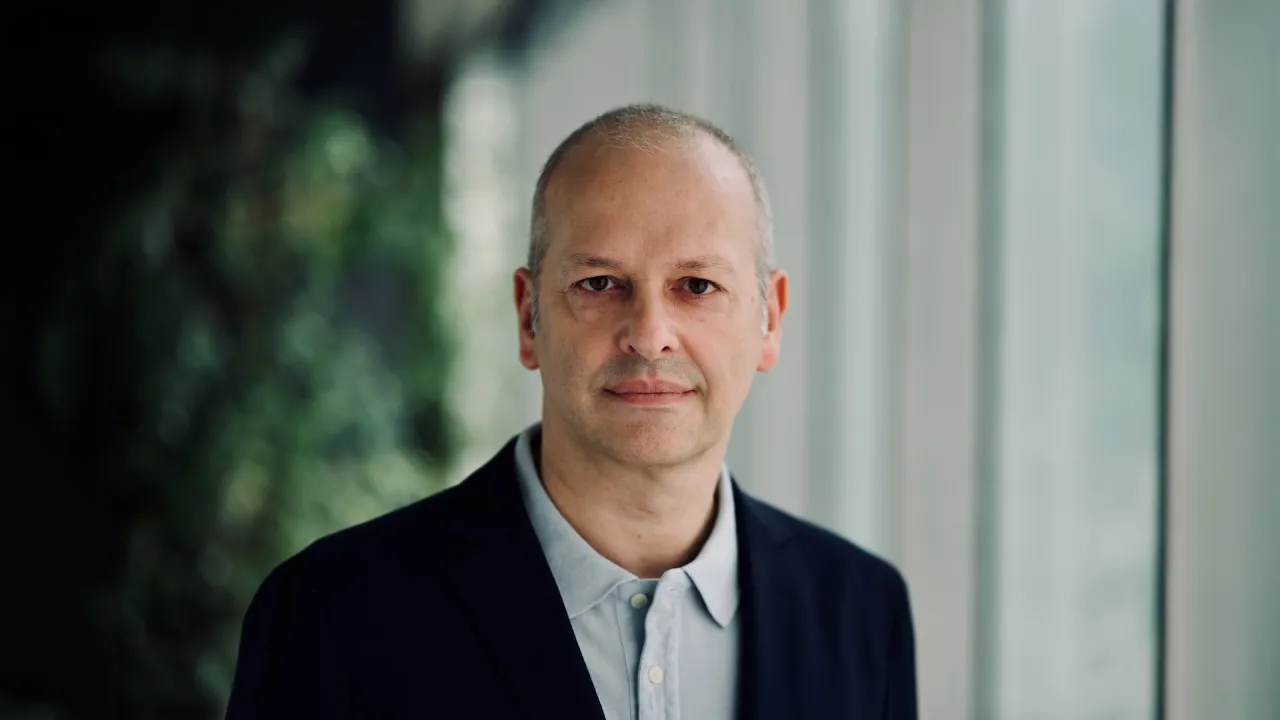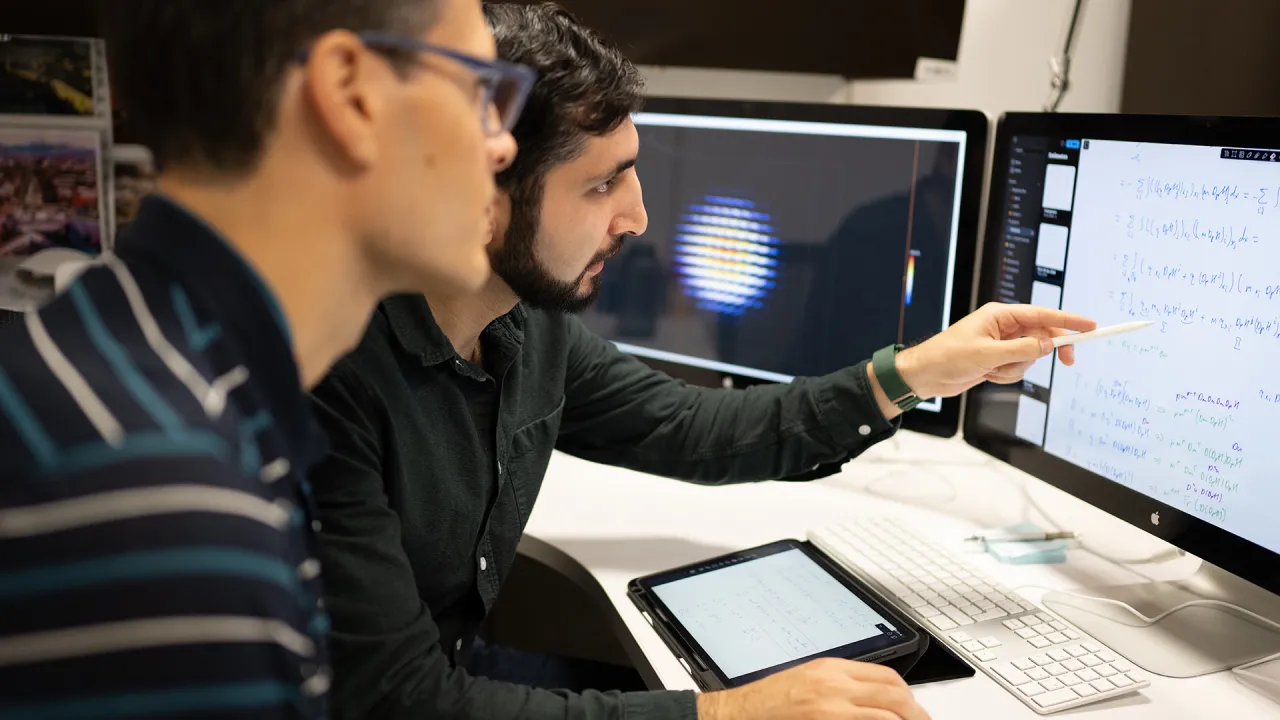
Partial Differential Equations and Applied Analysis
Researchers in partial differential equations (PDEs) and applied analysis focus on the theoretical foundations and applications of PDEs in physics, biology, economics, and engineering. Their research includes mean-field games, Hamilton-Jacobi equations, nonlinear PDEs, free boundary problems, the calculus of variations, and regularity theory.
Related People
Biography
Athanasios Tzavaras is a professor in KAUST's Applied Mathematics and Computational Science (AMCS) program, and principal investigator of the Applied Partial Differential Equations (AppliedPDE) research group.
Professor Tzavaras obtained a Diploma in Naval Architecture and Marine Engineering in 1981 from the National Technical University of Athens, Greece. He continued his studies in the United States, earning an M.Sc. in 1983 and a Ph.D. in Applied Mathematics in 1985 from Brown University.
He held academic positions at the University of Wisconsin-Madison from 1987 to 2005, the University of Maryland from 2005 to 2009 and the University of Crete, Greece, from 2002 to 2004 and from 2010 to 2014. Additionally, he has held visiting positions at Purdue University, U.S., Stanford University, U.S., École Polytechnique, France and the Université Marie et Pierre Curie - Paris VI, France.
Tzavaras is a fellow of the European Academy of Sciences. He is a member of the American Mathematical Society (AMS), the Society of Industrial and Applied Mathematics (SIAM) and the International Society for the Interaction of Mechanics and Mathematics. He is Associate Editor of various journals and Corresponding Editor of the SIAM Journal for Mathematical Analysis.
Research Interests
Professor Tzavaras' research interests include mathematical modelling, analysis and computation of fluids and materials. He investigates hyperbolic conservation laws and the structure of fluid mechanics and elasticity equations.
Among his other interests are singularity formation in solid mechanics (cavitation and shear bands), multi-scale analysis, hydrodynamic limits and practical properties of fluids, kinetic models of dilute polymeric systems and discrete lattice dynamics.
Education
Biography
David Ketcheson is a Professor of Applied Mathematics and Computational Science and the principal investigator of the Numerical Mathematics Group. He received his Ph.D. and M.S. in Applied Mathematics from the University of Washington in 2009 and 2008, respectively. Ketcheson obtained B.S. degrees in Mathematics and Physics & Astronomy from Brigham Young University, U.S., in 2004.
Research Interests
Professor Ketcheson’s research involves the analysis and development of numerical methods for integrating ordinary and partial differential equations (PDEs), as well as the implementation of such methods in open source, accessible, high-performance software and its application to understanding the behaviour of nonlinear waves in heterogeneous materials.
Education
Biography
Diogo Gomes is a professor of Applied Mathematics and Computational Science (AMCS) at KAUST.
He received his Ph.D. in Mathematics in 2000 from the University of California at Berkeley, U.S. Gomes completed his postdoctoral studies at the Institute for Advanced Study, Princeton University, U.S., in 2000, and at the University of Texas at Austin, U.S., in 2001. In 2006, he earned a Habilitation in Mathematics from the Technical University of Lisbon, Portugal.
In recognition of his academic excellence, Gomes was awarded UC Berkeley’s Morrey Prize in 1997. He has served as Editor of Minimax Theory and its Applications and the Journal of Dynamics and Games and Dynamic Games and Applications.
Research Interests
Professor Gomes' work focuses on partial differential equations (PDEs), namely viscosity solutions to elliptic, parabolic and Hamilton-Jacobi equations.
His research encompasses classical PDE questions—such as well-posedness, existence and uniqueness and regularity theory—and numerical methods and their applications. Gomes is particularly interested in applying mean-field game models to social sciences, economics and finance.
Education
Biography
Katerina Nik is an assistant professor of Applied Mathematics and Computational Sciences (AMCS) in the Computer, Electrical and Mathematical Sciences and Engineering (CEMSE) Division at KAUST. Her work focuses on partial differential equations that describe phenomena in biological growth processes, fluid dynamics, and mechanical engineering. She joined KAUST in 2024 after contributing to research at prominent European institutions.
Prior to joining KAUST, Dr. Nik worked as a principal investigator at the Austrian Academy of Sciences, supported by the APART-MINT Fellowship, which enabled her to lead innovative research in applied mathematics. Before this, she was a postdoctoral researcher at the Delft Institute of Applied Mathematics, TU Delft, where she collaborated with Professor Manuel Gnann's group. She also served as a postdoctoral researcher at the Faculty of Mathematics, University of Vienna, Austria, working with Professor Ulisse Stefanelli from 2020 to 2024.
Earlier in her career, she was a research and teaching assistant at Leibniz University Hannover (LUH), Germany, where she completed her doctorate in mathematics. Her academic contributions during this period focused on nonlinear dynamics and the modeling of complex systems.
Research Interests
Professor Nik works on (nonlinear) partial differential equations that describe phenomena in biological growth processes, fluid dynamics, and mechanical engineering. Additionally, she is interested in modeling with differential equations. In order to solve these problems, Nik employs both applied and pure mathematics methods. Her main research topics include:
- Nonlinear evolution equations and operator semigroups
- Free boundary problems
- Calculus of variations
- Geometric measure theory
- Well-posedness and qualitative properties of solutions
- Nonlinear dispersive waves
- Thin fluid film equations
- Microelectromechanical systems (MEMS)
- Biological growth processes, such as volumetric and surface growth
- Brakke's mean curvature flow
Education
Biography
Professor Miguel Urbano, who joined KAUST in 2022, received his Ph.D. in Mathematical Analysis in 1999 from the University of Lisbon, Portugal. Following a postdoctoral position at Northwestern University in the United States, he became an assistant professor at the University of Coimbra (UC), Portugal. He was promoted to associate professor with tenure in 2004 at UC and awarded a habilitation in mathematics in 2005 before becoming a full professor in 2009.
Professor Urbano is the author of The Method of Intrinsic Scaling, published in the Lecture Notes in Mathematics series, and over 70 scientific papers on nonlinear partial differential equations (PDEs). He has served on panels evaluating grants and research projects for the European Union, the European Research Council, the Academy of Finland, the Latvian Council of Science, the Serrapilheira Institute of Brazil and the Portuguese Science Foundation.
Urbano served on Portugal's National Council for Science and Technology from 2012 to 2015, won the José Anastácio da Cunha Prize from the Portuguese Mathematical Society in 2002, and was an associate editor for Nonlinear Analysis from 2013 to 2021. He is a corresponding academician of the Lisbon Academy of Sciences (elected in January 2021) and has been the editor-in-chief of Portugaliae Mathematica since January 2022.
Research Interests
Professor Miguel Urbano is an expert on free boundary problems and regularity theory for nonlinear PDEs, particularly on the method of intrinsic scaling for singular or degenerate-type equations.
He has made several contributions leading to a better understanding of the local behaviour of weak solutions, e.g., the derivation of a quantitative modulus of continuity for weak solutions of the two-phase Stefan problem, which models a phase transition at a constant temperature or the proof of a long-standing conjecture on the optimal regularity for solutions of the p-Poisson equation in the plane.
Education
Biography
Professor Markowich earned an M.S. and a Ph.D. in Habilitation for Applied and Numerical Mathematics at the Vienna University of Technology (TU-Wien), Austria. He became a Full Professor at the Technical University of Berlin (TUB) in 1989. From 1999 until 2007, he worked at the University of Vienna, Austria, as a Professor of Applied Analysis; from 2007-2011, he worked at the University of Cambridge, U.K., as a Professor of Applied Mathematics. Since 2011, he has been a Distinguished Professor at KAUST.
The Austrian-Italian researcher is a prolific researcher and author, with nearly 14,000 citations and more than 200 scientific papers in top international journals. He has authored a series of books presenting topics of science and engineering found in nature or everyday life. In the books, physical variables such as mass, velocity and energy are analyzed using partial differential equations, along with their spatial and temporal variations.
Professor Markowich has been honored with numerous awards and recognitions throughout his career; these include the Wittgenstein Prize from the Austrian Science Fund, The Royal Society Wolfson Research Merit Award and the Humboldt Research Award.
In 2015, and again in 2018, he held a J.T. Oden Faculty Fellowship at the Oden Institute for Computational Engineering and Sciences (University of Texas), the Von Neumann Visiting Professorship at the Technical University Munich, Germany, in 2013; the Excellence Chair at Jiaotong University, Shanghai, China, in 2012; and the Excellence Chair of the Foundation Sciences Mathématiques de Paris, France, in 2011.
Markowich is a Fellow of the European Academy of Sciences, the Institute of Physics, the American Mathematical Society and the Institute of Mathematics and its Applications. He is also a member of the European Academy of Sciences and Arts, Academia Europaea and a Foreign Member of the Austrian Academy of Sciences.
Research Interests
Dr. Markowich’s research uses differential equations in physics, artificial intelligence, biology, and engineering. Specifically, he is interested in deepening the understanding of the mathematical and numerical analysis of partial differential equations (PDEs) and their applications.
In particular, he is interested in:
- classical and quantum mechanical kinetic theory
- analytical and numerical problems occurring in highly oscillatory PDEs (like semiclassical asymptotics)
- Wigner transforms
- nonlinear PDEs describing dispersive and, resp., diffusive phenomena
- singular perturbations and longtime asymptotics
- generalized Sobolev inequalities
- inverse problems in solid-state physics
- image processing using PDEs.
